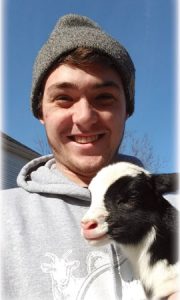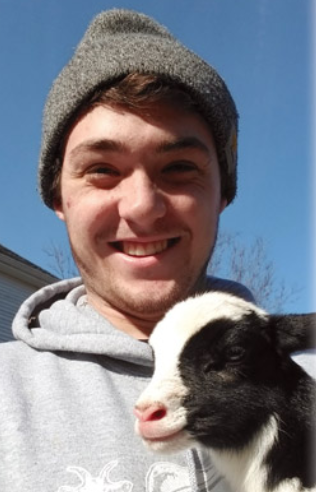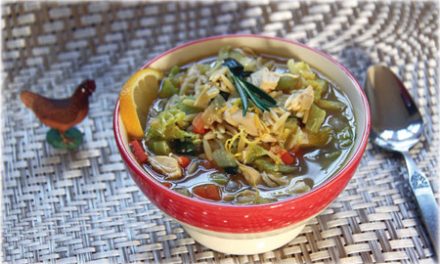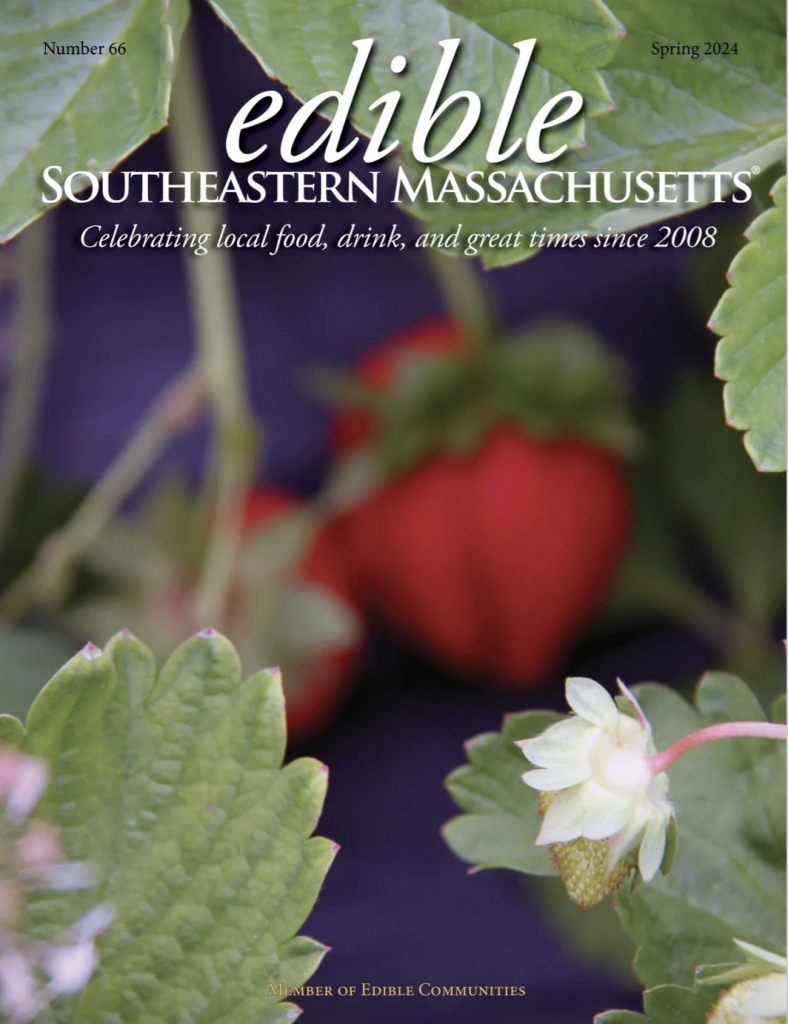By Marek Kulig.
For many farmers, the day-to-day script packs the sturdiness of an ox: wake before first light, pour a scoop (or several) of grain, distribute flakes of hay if it’s the season, sow if it’s another, harvest, with etcetera atop etcetera in between. The day-to-day husbandry of domesticated animals does not leave farmers with much time to ad lib; vacations among those who provide the Commonwealth with responsibly raised livestock are scarce, as are those who can offer relief.
Enter Taylor Dalton. He’s been long-term substitute farming for over two years now, and his business has grown, often having upwards of a dozen jobs at a time. “I do this full time,” Dalton says, “but I also have employees covering certain jobs I can’t make because I’m already at a job.” A former Weir River Farm assistant manager, Dalton started his business Roosts to Ranches, which specializes in livestock sitting and care, in 2016.
Because of the service he’s able to offer—an always varying laundry list of duties his clients bestow upon him (and others)—Dalton allows for the otherwise regimented lives of farmers to stray from the pen. Not only that, he’s noticed more people making the decision to start a farm as a result.
Dalton, whose farm-sitting territory is expanding progressively west from the Foxboro area and from the South Shore all the way down the South Coast and onto the Cape, recalls the time the idea grazed his mind. “It came to me while I was driving around.” He’d pass multiple private properties and noticed their backyard chickens. The thought occurred to him that people should be able to start farms and raise animals without having to worry about carving out vacation time and stressing about their animals while they are away.
Before it used to be Hey, I want to start a farm—some chickens, a goat, maybe a horse or two—but how do I continue to give it the constant attention it needs if I decide to go away? Now it’s Hey, Roosts to Ranches advertises as “Always Open”…I’ll have them watch the homestead while I’m away, or, I can start a horse ranch and still have the flexibility to travel.

Taylor Dalton with another new friend.
But that’s not all Dalton can do. He’s slowly rolling out a humane predator removal program. “Predators are always on farmers’ minds,” he claims, and adds that predators are another deterring factor for people weighing the pros and cons of starting a farm. “It’ll be 90% prevention and 10% safe capture.”
What it comes down to is the right lock. “Any sort of latch,” Dalton elaborates, “and a raccoon can get in. Essentially, an animal is looking for the most convenient meal, so stopping it with a well-secured gate will usually make it look elsewhere.” But should the lock prove ineffective, there is a safety net in place.
Ultimately, the mission is to provide farmers with a support system conducive to a healthy lifestyle; one that features occasionally scheduled personal time and peace of mind that the animals are in good hands. But what happens when Dalton’s animals are the ones in need of sitting? “Fortunately,” he professes, “I’ve got a great team.” The reliever relieved.
Marek Kulig has been teaching some middle school social studies this year— ancient civilizations, in particular. He’s learned heaps about how far farmers and farming have come, and how much farther they can go (away from home) with highly competent and diligent farm-sitters at the ready. What a comfort!







